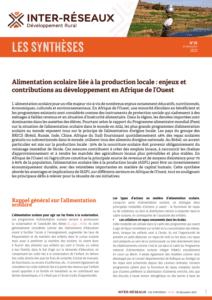Uganda’s National Agriculture and Advisory Services (NAADS) has made great contributions to the transformation of the country’s agricultural sector, yet after 21 years in existence, the organization continues to face difficulties in reaching women farmers.
The IFPRI project Reaching Smallholder Women with Information Services and Resilience Strategies to Respond to Climate Change aims to increase women’s climate resilience capacities by overcoming their information constraints. The project—which operates in India, Kenya, and Uganda, and has reached close to 40,000 women—employs short videos showcasing women farmers applying climate-smart agriculture (CSA) practices such as climate-smart pig and poultry management, soil and water management, and integrated pest management. Extension agents organize viewings for rural audiences.
Our recent research in Uganda offers a window into some of the benefits from the intervention; it shows that the video presentations boosted women’s knowledge of some CSA techniques—though gender gaps and other obstacles to adoption continue to pose challenges.
In conclusion, use of videos in extension promotes farmer awareness, increases demand for technical support, facilitates farmer-to-farmer learning, and encourages farmers’ inventiveness and creativity. But videos on their own are not a panacea. They should be integrated with other extension strategies to support farmers’ learning processes.







